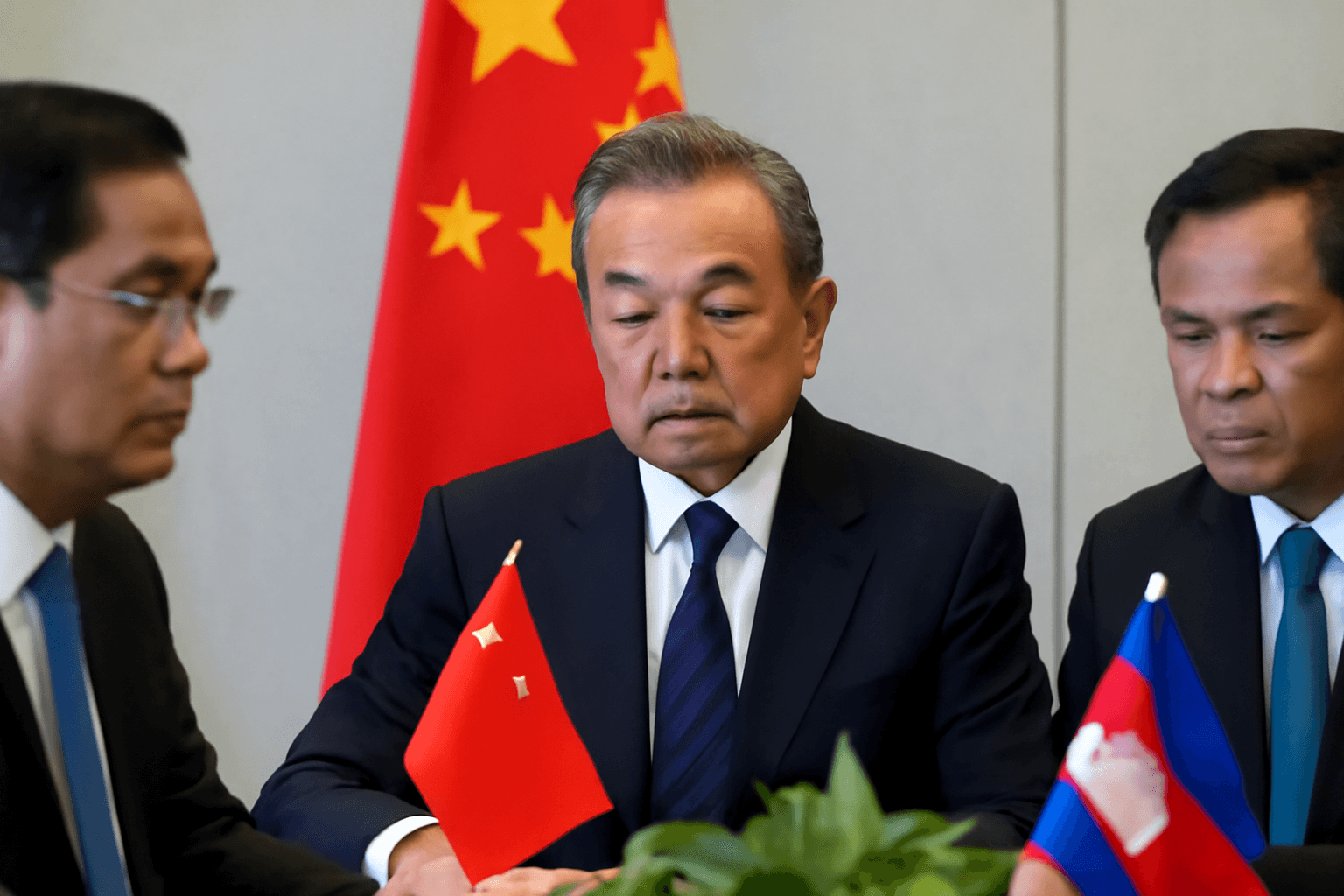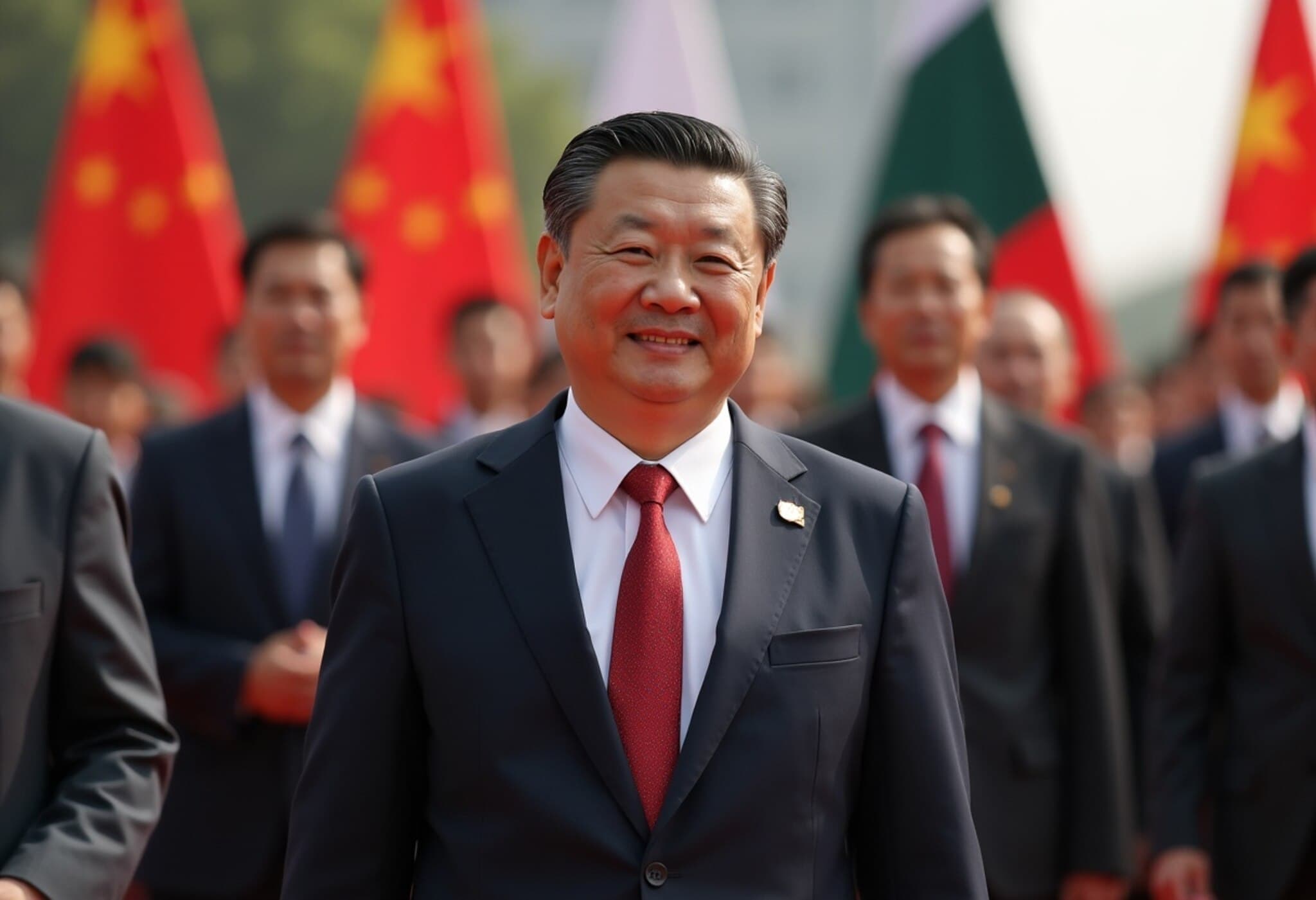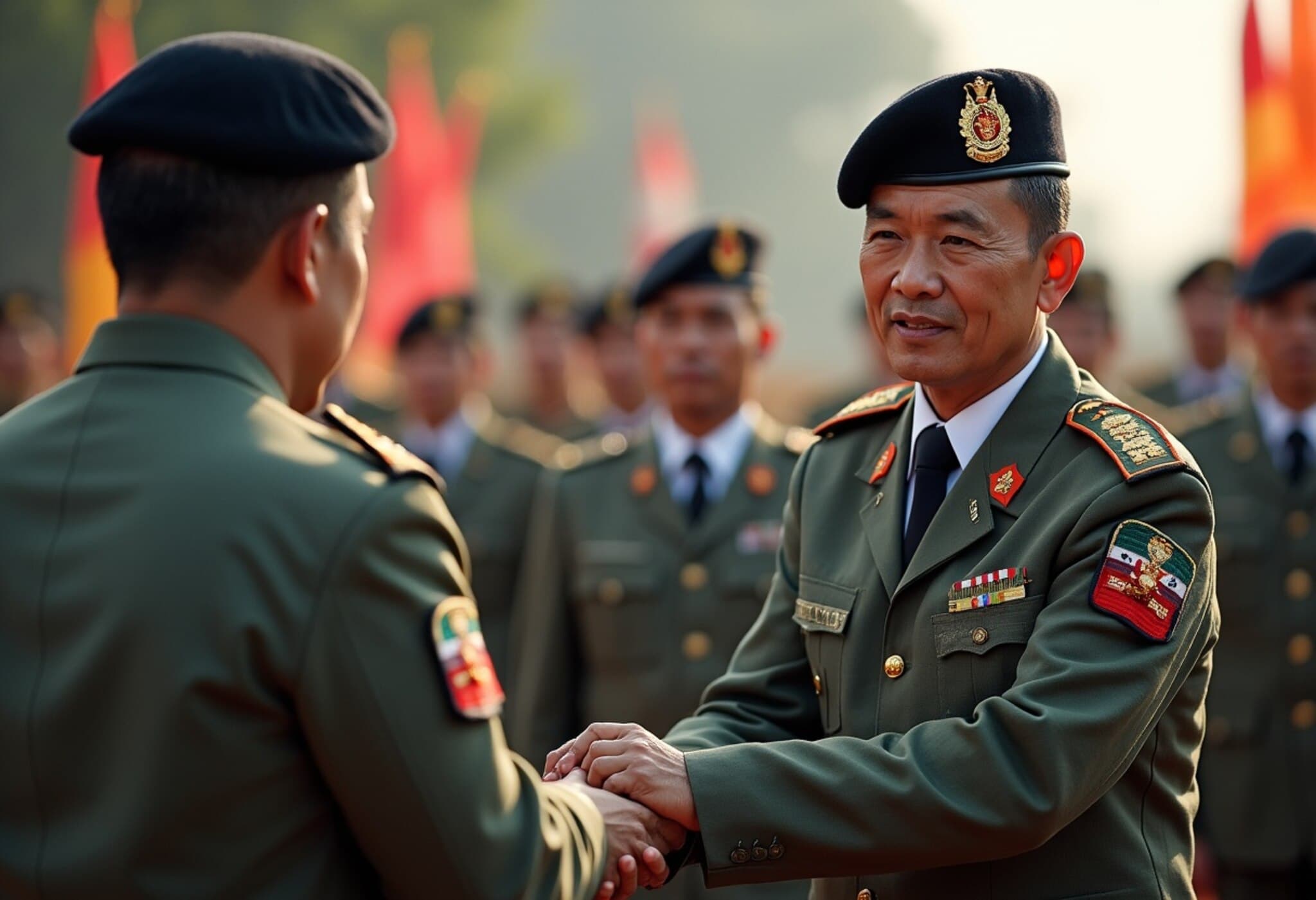China Offers Diplomatic Support to Resolve Thailand-Cambodia Border Dispute
In a significant move aimed at calming heightened tensions in Southeast Asia, China has extended its diplomatic hand to help Thailand and Cambodia resolve their long-standing border dispute. On August 14, 2025, Chinese Foreign Minister Wang Yi publicly expressed Beijing's readiness to assist both nations in peacefully settling their differences, highlighting China’s growing role as a regional peace broker.
Context and Recent Developments
The border conflict between Thailand and Cambodia has simmered for decades, flaring most recently in late May when an armed skirmish resulted in the death of a Cambodian soldier, marking the worst violence between the neighbors in over ten years. Despite a ceasefire agreement reached in late July, tensions remain fragile, with both sides eyeing diplomatic pathways to prevent further escalation.
China’s Role and Mediation Efforts
During the recent Lancang-Mekong Cooperation Foreign Ministers' Meeting in Yunnan province, Wang Yi convened separate talks with Thai Foreign Minister Maris Sangiampongsa and Cambodian Foreign Minister Prak Sokhonn, followed by a trilateral session. According to Chinese Foreign Ministry statements, these discussions were described as “friendly and candid,” with an emphasis on:
- Encouraging dialogue to dispel misunderstandings
- Rebuilding mutual trust and restoring amicable bilateral relations
- Reopening border crossings as soon as feasible to facilitate trade and people-to-people exchanges
- Supporting landmine clearance efforts in affected border regions
- Addressing cross-border criminal activities through joint regional cooperation
Thailand’s Foreign Minister publicly appreciated China’s constructive role, acknowledging Beijing's contribution toward peace and dialogue through informal consultations, characterized as “tea chats.” However, Cambodian authorities have yet to issue a public response to China’s mediation proposal.
Economic and Regional Stability Dimensions
Beyond diplomatic mediation, Wang Yi also underscored China's intentions to deepen economic ties with both countries as part of a broader regional stability framework. Notably, in his bilateral meeting with the Thai Foreign Minister, Wang reaffirmed China's commitment to accelerate the China-Thailand railway project, a major infrastructure initiative poised to enhance connectivity and economic growth. He further urged Thailand to facilitate a more favorable environment for Chinese investments, stressing the importance of maintaining robust regional supply chains.
With Cambodia, Wang expressed support for ongoing political stability efforts and commended Phnom Penh's crackdown on online gambling and cyber fraud, issues that have regional security implications. This underscores China's strategic interest in promoting governance and stability within its Southeast Asian neighbors.
Expert Analysis: Navigating Complex Regional Ties
China’s engagement in this dispute serves multiple purposes—advancing its image as a peacekeeper, safeguarding economic interests, and fostering regional integration under initiatives like the Belt and Road. Yet, experts caution that success depends on the willingness of Thailand and Cambodia to balance sovereignty concerns with pragmatic cooperation.
With ASEAN unity often challenged by bilateral disputes among member countries, China's mediation may offer a pragmatic path forward, but also risks further entrenching Beijing’s influence in Southeast Asia. This dynamic invites critical questions about regional autonomy and the evolving power play in international diplomacy.
Looking Ahead: What’s Next for the Border Dispute?
- Will Thailand and Cambodia accept sustained Chinese mediation, or seek broader ASEAN involvement?
- How swiftly can border crossings be safely reopened to revive commerce and social ties?
- What concrete steps will be taken to ensure thorough landmine clearance and prevent future violence?
- To what extent will economic cooperation buttress diplomatic progress without exacerbating dependency?
As the region watches closely, the trajectory of this dispute may set important precedents for conflict resolution within Southeast Asia’s complex geopolitical fabric.
Editor’s Note
The renewed offer by China to mediate one of Southeast Asia’s longest-standing territorial disputes provides a refreshing yet complex opportunity for peace. While the tacit involvement of a major power promises diplomatic momentum, it also raises nuanced concerns about sovereignty and regional balance. Readers are encouraged to consider how economic ambitions and security imperatives entwine with national identity and international diplomacy in this evolving narrative.



















